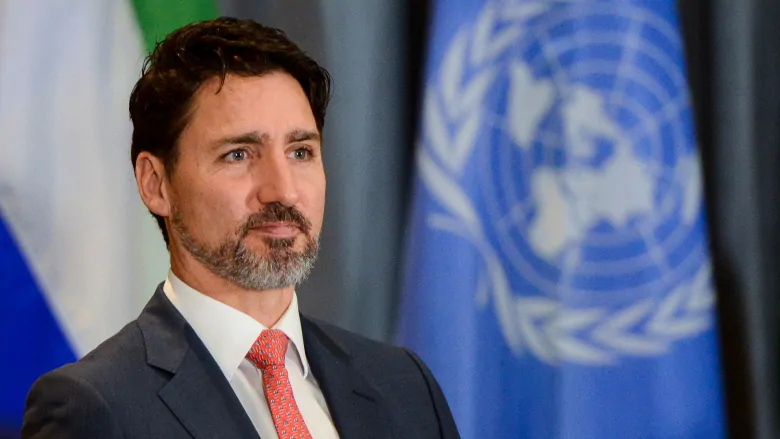The upcoming vote for a seat on the UN Security Council should force us to do some real soul-searching about our place in the world, write Stephen Kimber and John Kirk.

This column is an opinion by John Kirk, a professor of Latin American studies at Dalhousie University and author or co-editor of 18 books on Latin America, and Stephen Kimber, a professor of journalism at the University of King’s College and author of nine books, including the award-winning What Lies Across the Water: The Real Story of the Cuban Five. For more information about CBC’s Opinion section, please see the FAQ.
“Many of you have worried Canada has lost its compassionate and constructive voice in the world,” Justin Trudeau told a boisterous, celebratory rally in the immediate aftermath of his 2015 federal election victory. “Well, I have a simple message for you … we’re back.”
But five years on, Canada is not back.
Why not? Because in foreign policy — as in much else with this Liberal government — the focus has been on style rather than substance.
Consider Canada’s current bid for a UN Security Council seat, which goes to a vote later this month.
Why does Canada want the seat? Mostly, it seems, to show the world Justin Trudeau can do what Stephen Harper could not. In 2010, Harper tried to win a Security Council seat and his failure to do so was considered a major political embarrassment for the Tories.
Prime Minister Justin Trudeau explains what Canada can do with a seat on the United Nations Security Council. 0:48
But Trudeau’s own campaign for one of the Security Council’s 10 rotating, elected seats — which he launched in February 2016 with a promise that Canada was back in the UN peacekeeping business — has floundered from the beginning.
In February of this year, Trudeau made his first visit to Africa. While Masai Ujiri, the high-profile Nigerian-born president of the Toronto Raptors, played wingman, Trudeau courted some of the world’s most controversial leaders during the annual meeting of the African Union.
Africa claims 54 votes in the UN, and Canada will need at least 129 to win one of the two council seats up for grabs when the ballots are counted.
Prime Minister Justin Trudeau faced questions about addressing human rights issues with his international counterparts during a visit to Senegal. 1:50
Which may also explain our leadership of the 14-nation Lima Group in its scheme to bring about regime change in Venezuela. Many of the nations in that group are led by extremely undemocratic Latin American rulers whose governments show little respect for human rights. But they all have votes at the UN.
So, too, do the Arab countries we are now

